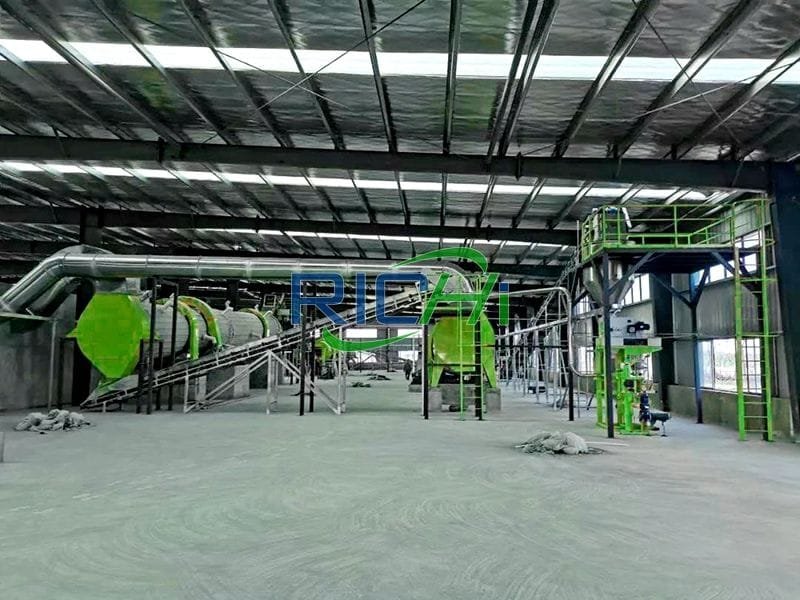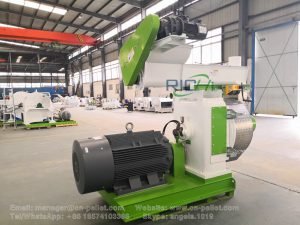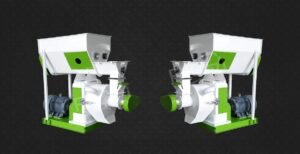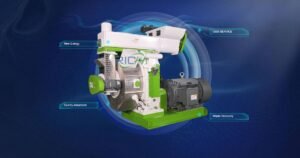The use of biomass materials in the production of organic fertilizer pellets offers significant environmental advantages, contributing to sustainable agricultural practices and waste management. This article explores the key environmental benefits of incorporating biomass into organic fertilizer pellet production.
- Waste Reduction and Resource Recovery
One of the primary environmental advantages of using biomass in organic fertilizer pellets is the reduction of waste:
- Agricultural Waste Utilization: Crop residues, such as straw and stalks, which might otherwise be burned or left to decompose, can be transformed into valuable fertilizer.
- Forest Residue Management: Wood chips, sawdust, and other forestry by-products can be repurposed, reducing waste in the timber industry.
- Industrial By-product Recycling: Organic waste from food processing and other industries can be converted into fertilizer, diverting it from landfills.
This waste reduction not only minimizes environmental pollution but also promotes a circular economy model, where waste from one process becomes a resource for another. (Related post: biofertilizer project cost)
- Reduced Carbon Footprint
Biomass-based organic fertilizer pellets contribute to carbon footprint reduction in several ways:
- Carbon Sequestration: When applied to soil, organic fertilizers help sequester carbon, improving soil structure and reducing greenhouse gas emissions.
- Fossil Fuel Replacement: By using biomass waste as a raw material, the need for fossil fuel-based fertilizers is reduced, lowering overall carbon emissions in agriculture.
- Reduced Transportation Emissions: Locally sourced biomass materials often require less transportation compared to synthetic fertilizers, further reducing carbon emissions.
- Soil Health Improvement
The use of biomass in organic fertilizer pellets significantly benefits soil health:
- Organic Matter Enhancement: These pellets increase the organic matter content in soil, improving its structure, water retention capacity, and overall fertility.
- Microbial Activity Promotion: The organic components in biomass stimulate beneficial microbial activity in the soil, enhancing nutrient cycling and plant health.
- Soil Erosion Prevention: Improved soil structure from organic fertilizers helps prevent erosion, protecting valuable topsoil.
- Water Conservation
Biomass-based organic fertilizer pellets contribute to water conservation efforts:
- Improved Water Retention: The organic matter in these fertilizers enhances the soil’s water-holding capacity, reducing the need for frequent irrigation.
- Reduced Water Pollution: Unlike synthetic fertilizers, organic pellets are less likely to leach into groundwater, reducing water pollution risks. (Related post: organic manure making machine)
- Biodiversity Support
The use of organic fertilizer pellets made from biomass supports biodiversity:
- Habitat Preservation: By reducing the need for chemical fertilizers, these pellets help preserve natural habitats and protect wildlife.
- Soil Ecosystem Enhancement: The diverse organic components in biomass support a rich soil ecosystem, benefiting various microorganisms and soil fauna.
- Energy Efficiency in Production
The production of biomass-based organic fertilizer pellets can be more energy-efficient compared to synthetic fertilizers:
- Lower Processing Energy: Compared to the energy-intensive production of synthetic fertilizers, processing biomass into organic fertilizer pellets often requires less energy.
- Potential for Renewable Energy Use: The production process can potentially utilize renewable energy sources, further enhancing sustainability.
- Reduced Chemical Dependency
By promoting the use of organic fertilizers, biomass pellets help reduce dependency on chemical inputs in agriculture:
- Decreased Chemical Runoff: Less reliance on chemical fertilizers means reduced chemical runoff into water bodies, protecting aquatic ecosystems.
- Improved Food Safety: Organic fertilizers contribute to safer food production by reducing chemical residues in crops.
- Climate Change Mitigation
The use of biomass in organic fertilizer pellets contributes to climate change mitigation efforts:
- Reduced Methane Emissions: By diverting organic waste from landfills, where it would produce methane, a potent greenhouse gas, the production of these pellets helps mitigate climate change.
- Carbon-Neutral Cycle: The carbon released when biomass-based fertilizers decompose is part of the natural carbon cycle, unlike the additional carbon released from fossil fuel-based fertilizers.
- Sustainable Agriculture Promotion
Biomass-based organic fertilizer pellets align with sustainable agriculture practices:
- Closed-Loop Systems: They encourage the development of closed-loop agricultural systems where waste is minimized and resources are efficiently utilized.
- Long-term Soil Sustainability: By improving soil health over time, these fertilizers contribute to the long-term sustainability of agricultural lands.
Conclusion
The environmental advantages of using biomass materials in organic fertilizer pellet production are multifaceted and significant. From waste reduction and carbon footprint minimization to soil health improvement and biodiversity support, these benefits align closely with global sustainability goals.
As the world increasingly focuses on environmentally friendly agricultural practices, the use of biomass in organic fertilizer production represents a crucial step towards more sustainable and eco-friendly farming methods.
By transforming what would otherwise be waste into valuable soil amendments, this approach not only addresses waste management issues but also contributes to improved crop yields, reduced environmental pollution, and long-term soil health.
As research and technology in this field continue to advance, we can expect even more innovative uses and environmental benefits from biomass in organic fertilizer production, further cementing its role in sustainable agriculture and environmental conservation.
For details please contact: pelletizer
WhatsApp:86 138 3838 9622
Email:enquiry@richipelletmachine.com



